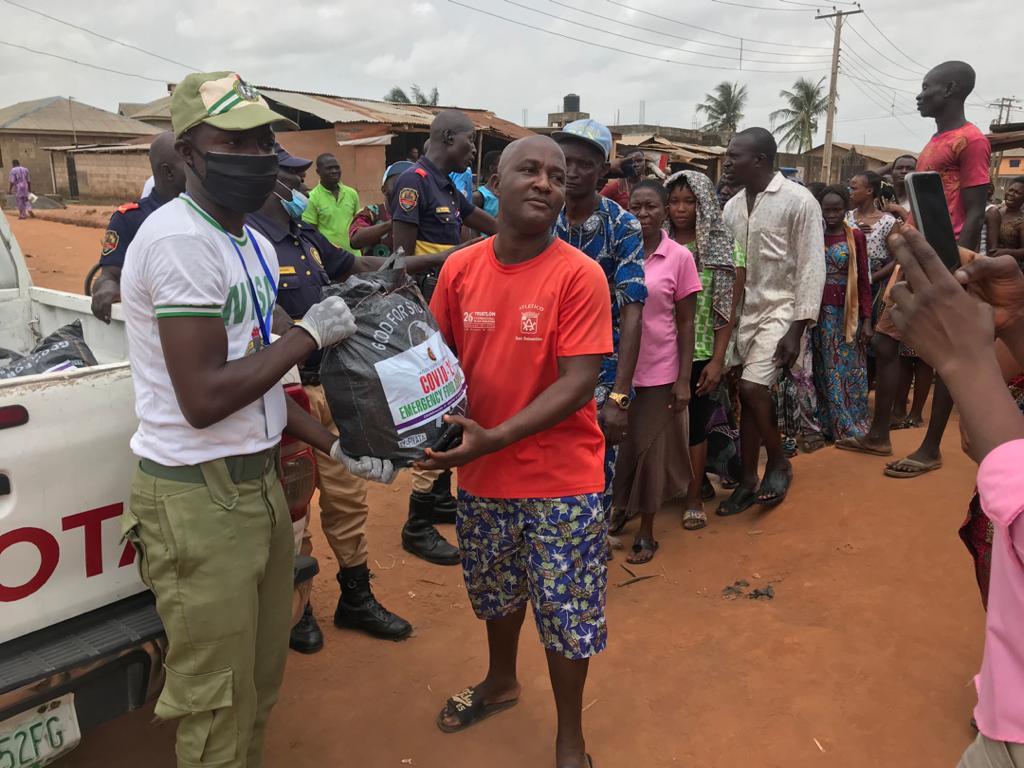Special Features
Struggling Citizens, Inadequate Measures: Unveiling Nigeria’s Palliative Predicament

Nigeria’s trajectory took an unprecedented turn with President Bola Ahmed Tinubu’s bold declaration shortly after his May 29, 2023, inauguration that the fuel subsidy was to be abolished.
Even as the inauguration festivities at Abuja’s Eagle Square drew to a close, the reverberations of this statement were felt across the nation’s fuel stations.
Oil marketers swiftly increased petrol prices, triggering a chain reaction that raised the costs of essential goods and services nationwide, spanning food, transportation, housing, and education. This economic upheaval found its reflection in the Consumer Price Index, which, for the first time in a decade, soared to 24.08 per cent by July 2023.
In response to the resulting high cost of living, the federal government introduced interim measures, including raising the minimum wage, offering grants to micro, small, and medium-sized enterprises (MSMEs), releasing 200,000 metric tonnes of grains, and more.
President Tinubu’s administration further unveiled a N5 billion relief package for each state, along with shipments of rice, as part of the palliative measures. However, these actions have been criticized as inadequate to address the severe economic strain imposed by fuel subsidy removal, especially with inflation ranging between 20 to 25 per cent.
Governor Babagana Zulum of Borno State elucidated the N5billion per state relief fund at the conclusion of the National Economic Council (NEC) meeting, explaining its allocation formula: “52 per cent of this amount is granted to states, while the remaining 48 per cent is to be repaid in instalments over 20 months to the CBN by states and local government areas.” It’s evident that these interventions fall short as palliatives for the financial hardship imposed on Nigerians due to the subsidy removal.
The inadequacy of these measures became starkly apparent in states attempting to distribute the promised relief. Videos circulating on social media depicted residents receiving meagre food allocations in contrast to the actual need.
Residents in Adewole Ward, Ilorin West LGA of Kwara State, were allocated a mere fraction of food supplies, leading to disappointment and criticism. Similarly, Osun State residents voiced their frustration at the delayed arrival of promised palliatives. In Lagos, the chairman of Somolu Local Council, Abdul Hamed Salawu, faced backlash for the chaotic distribution of food packs, highlighting the lack of proper organization.
As criticism mounts, it’s worth noting that citizens and some state governments have complained about not receiving the pledged palliatives. Some state governments delay distribution until all grains arrive, while others focus on refining their social registers to ensure effective distribution.
Edo State Governor Godwin Obaseki voiced concern over the federal government’s seemingly haphazard response to the consequences of the fuel subsidy removal, indicating a lack of planning.
Governor Obaseki’s words underscore a larger issue: the disconnect between policy implementation and its repercussions. Amidst logistical challenges, mismanagement, and concerns of inefficient distribution, there’s a growing call for the return of the fuel subsidy.
However, this call is accompanied by the recommendation to bolster anti-corruption agencies to counter the systemic corruption plaguing subsidy management. Ultimately, the aim is to alleviate the hardships imposed on Nigerians and ensure that the government fulfils its mandate to enhance citizens’ welfare.
Click to watch our video of the week
Advertise or Publish a Story on EkoHot Blog:
Kindly contact us at ekohotblog@gmail.com. Breaking stories should be sent to the above email and substantiated with pictorial evidence.
Citizen journalists will receive a token as data incentive.
Call or Whatsapp: 0803 561 7233, 0703 414 5611










![[JUST IN] Natasha: Senate Passes Vote Of Confidence On Akpabio](https://ekohotblog.com/wp-content/uploads/2025/03/godswill-Akpabio--400x240.jpg)
![[JUST IN] Natasha: Senate Passes Vote Of Confidence On Akpabio](https://ekohotblog.com/wp-content/uploads/2025/03/godswill-Akpabio--80x80.jpg)







